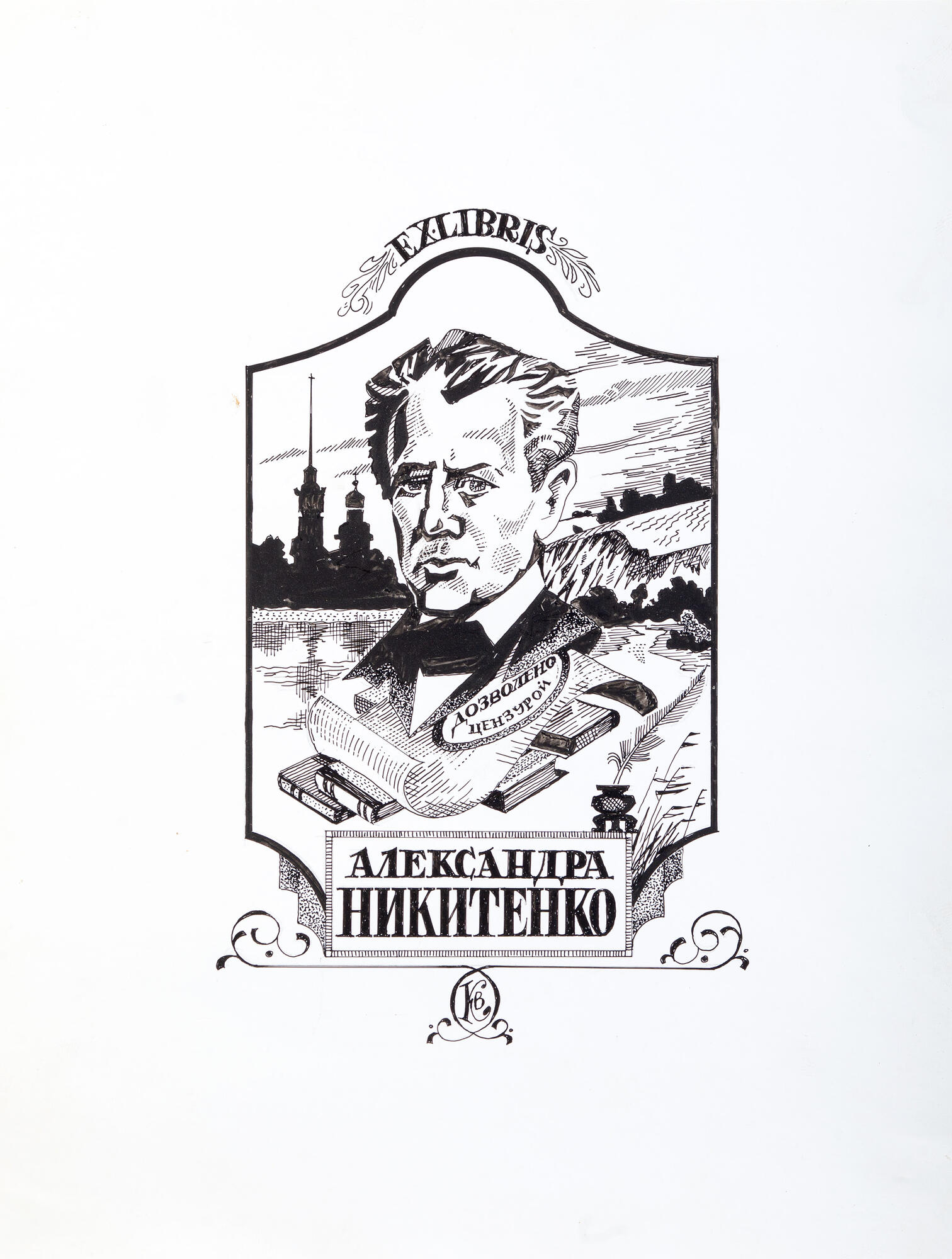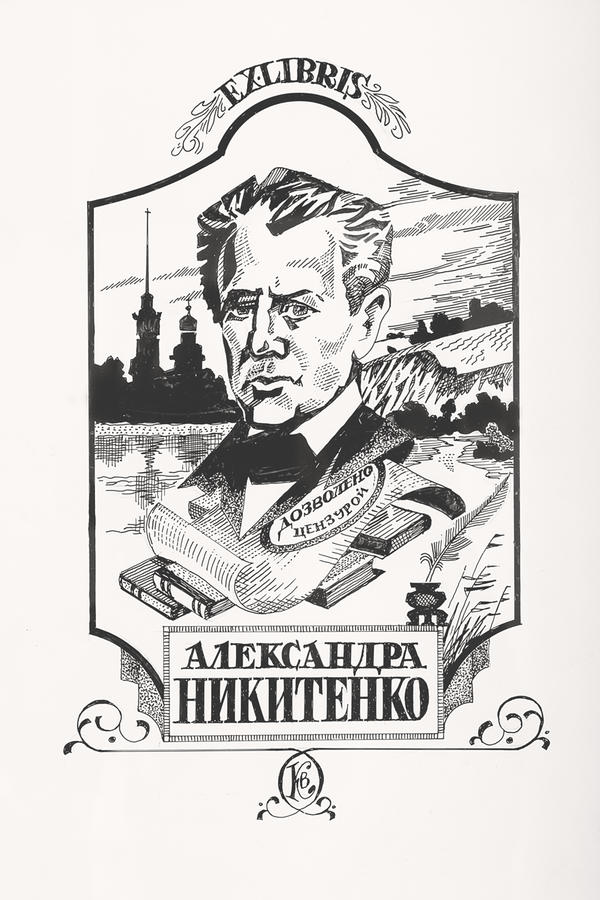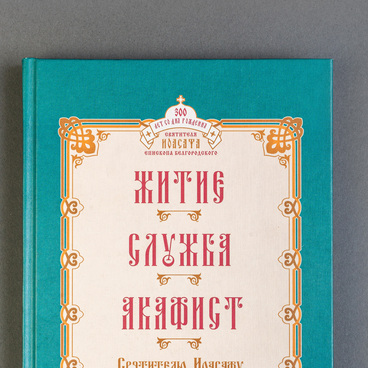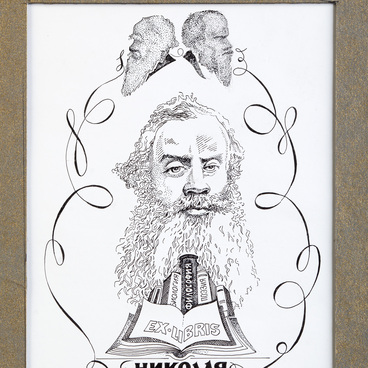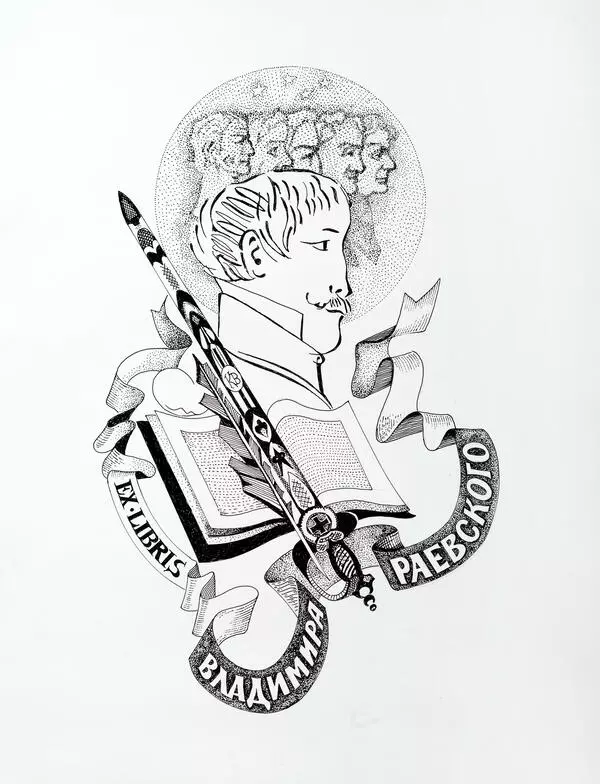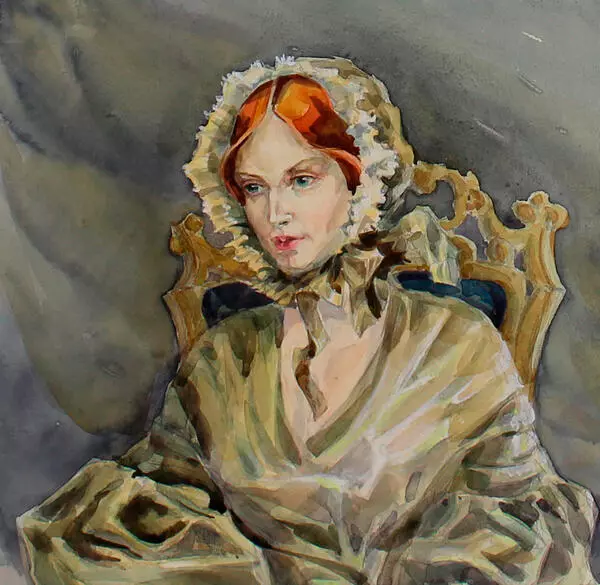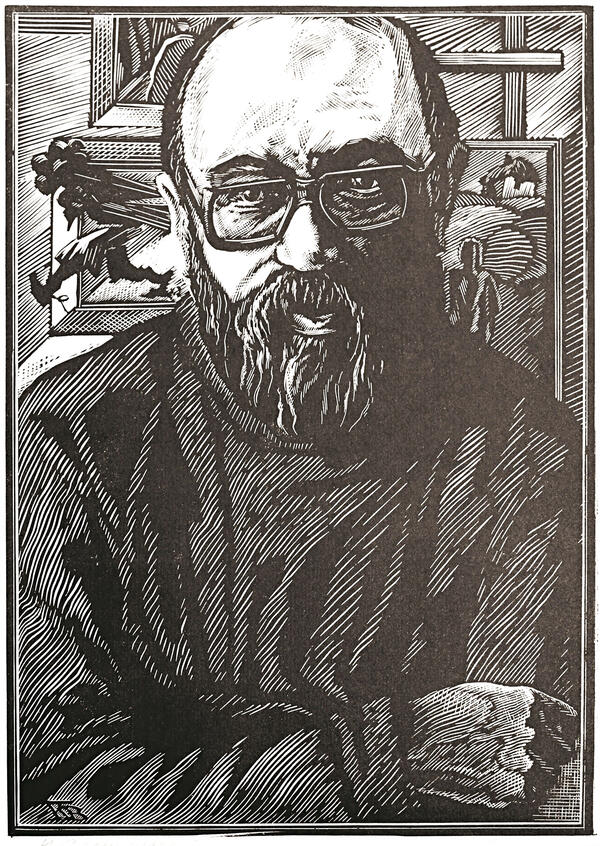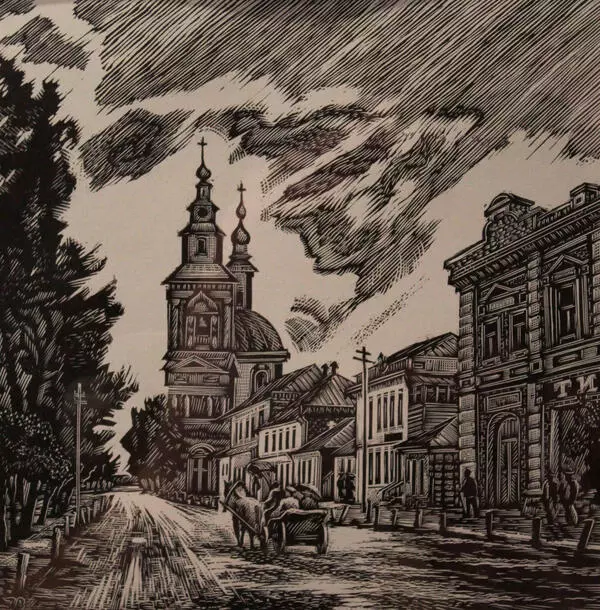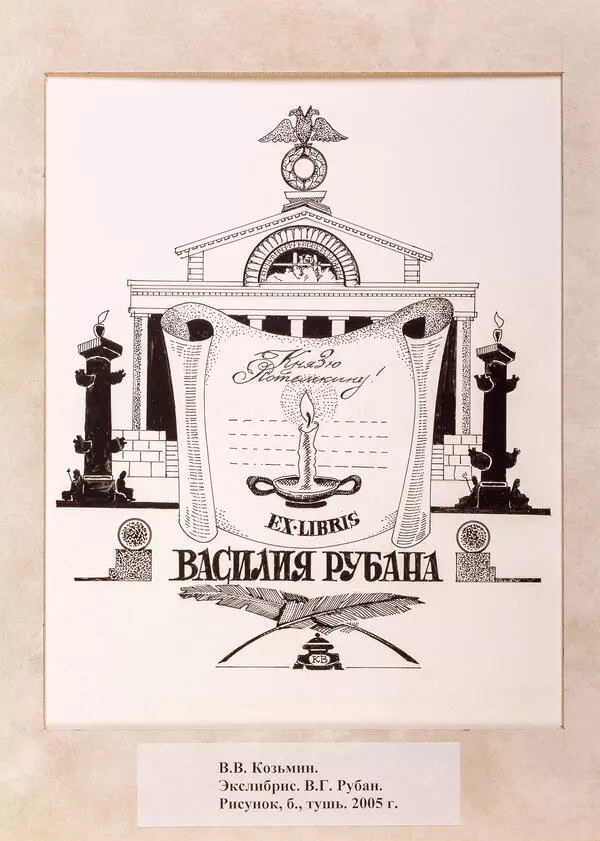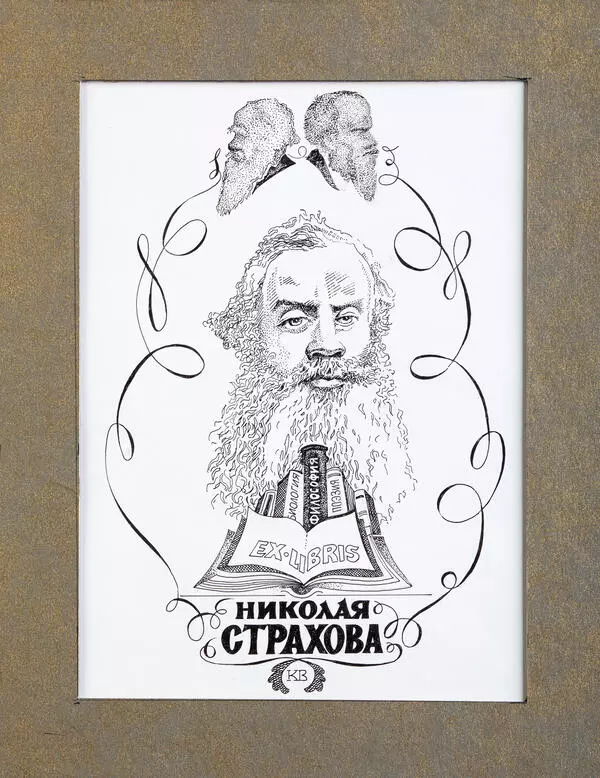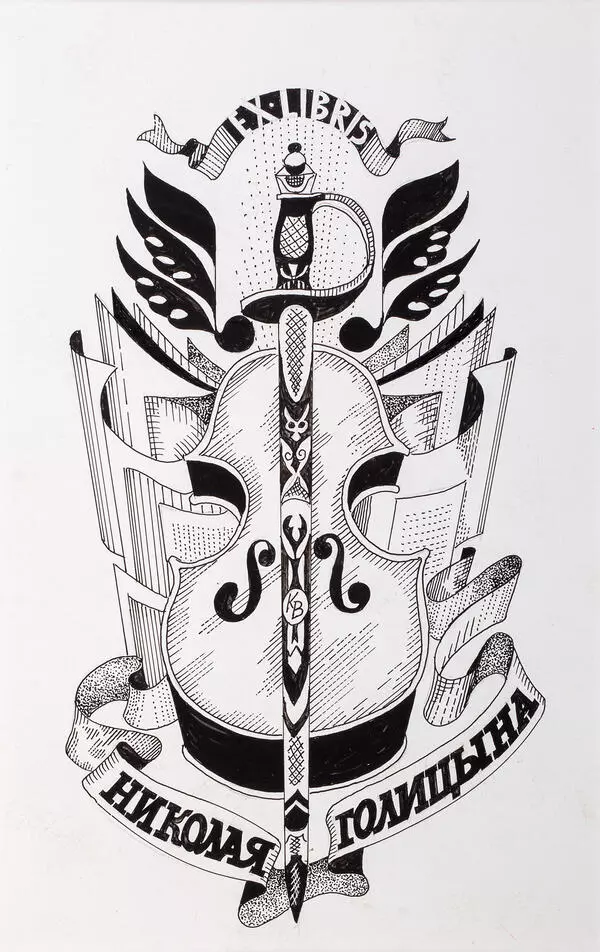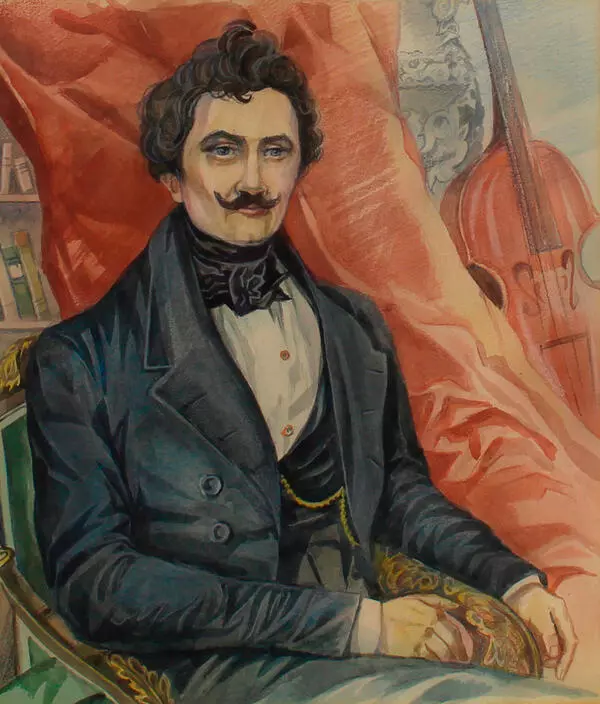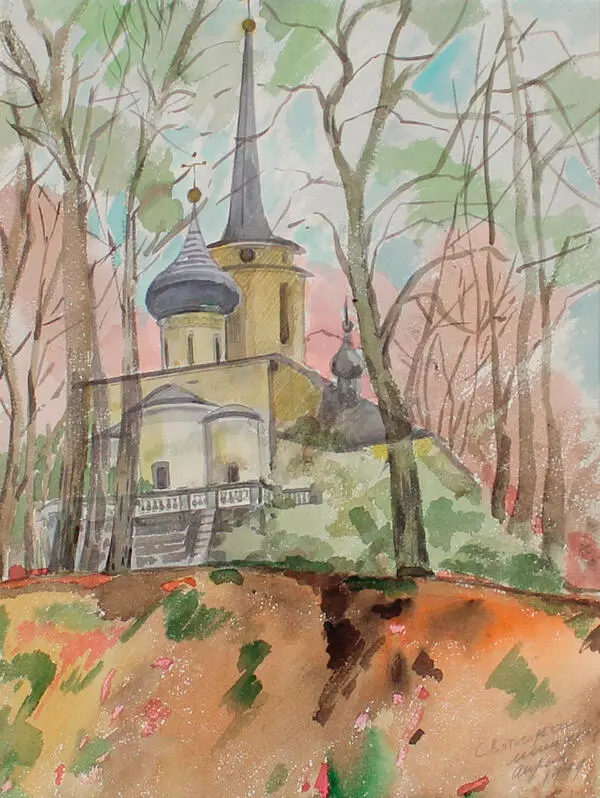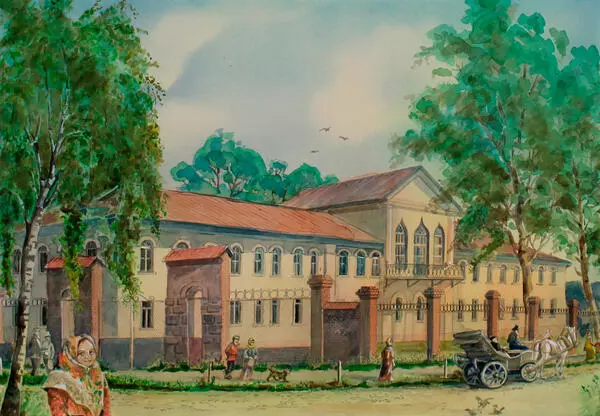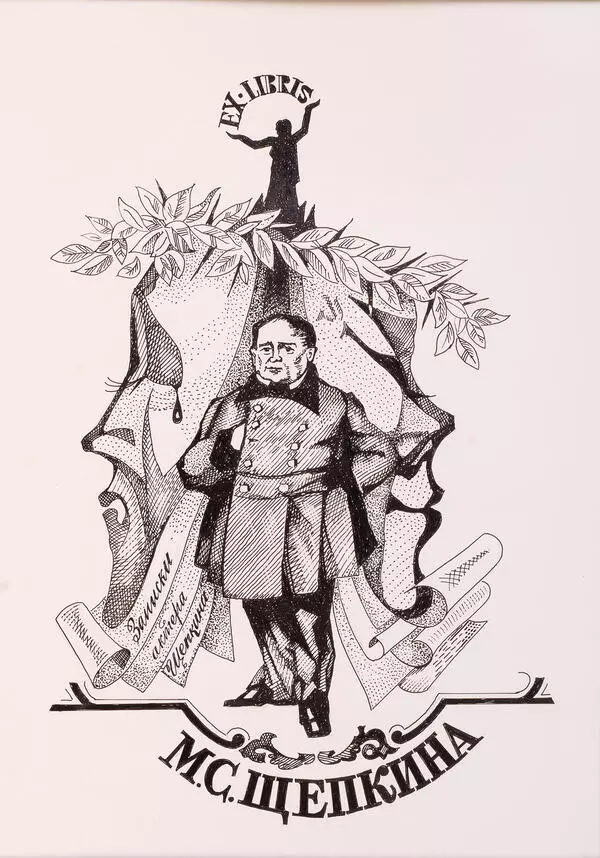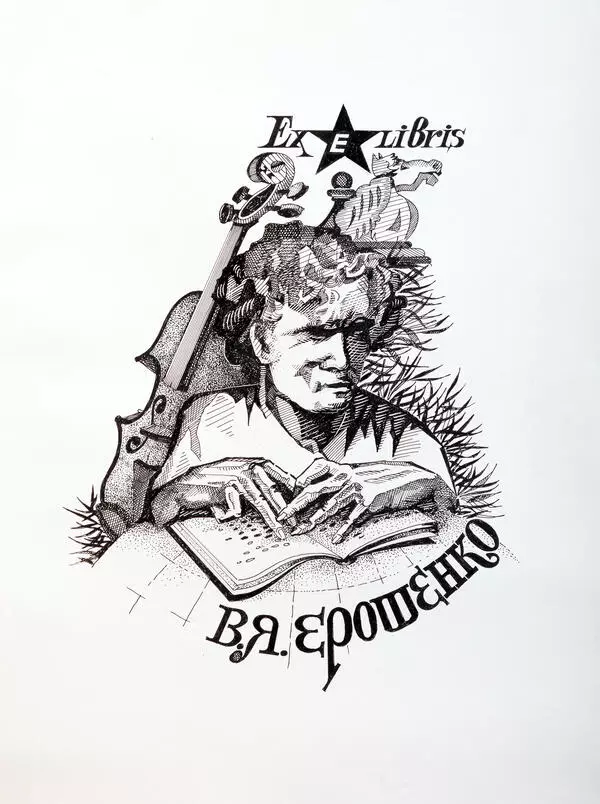Alexander Vasilyevich Nikitenko, who came from the serfs of Count Nikolai Petrovich Sheremetev, was born in the village of Uderevka, Biryuchensky Uyezd, Voronezh Governorate. His father Vasily Mikhailovich was literate and worked as a chorister in the count’s choir and a clerk in the estate management office. Alexander Nikitenko graduated from a district school in Voronezh, but, despite having obvious talents, his status of being a serf prevented him from getting further education.
In Ostrogozhsk, he was introduced as a tutor to Major General Dmitry Mikhailovich Youzefovitch and became his secretary. In the mid-1820s, with the assistance of Prince Alexander Nikolayevich Golitsyn, the poets Vasily Andreyevich Zhukovsky and Kondraty Fyodorovich Ryleyev, Nikitenko was manumitted.
The next stage of his life was connected with Saint Petersburg: there, having avoided exile for dealings with the Decembrists, he graduated from the Faculty of Philosophy and Law of Saint Petersburg University.
His first article, published in the “Syn otechestva” (The Son of the Fatherland) magazine and entitled “On Overcoming Misfortunes” (1826), received great reviews from Nikolay Ivanovich Gretsch, Thaddeus Venediktovich Bulgarin, and Konstantin Matveyevich Borozdin. The latter invited Alexander Nikitenko to prepare notes for the charter of censorship.
In the subsequent years, he taught at a number of educational institutions in Saint Petersburg, worked as a censor, and edited the magazines “Syn otechestva”, “Sovremennik” and later “Zhurnal narodnogo prosveshcheniya”. Having defended his thesis, he received the status of a corresponding member of the Academy of Sciences.
The world of literature brought Nikitenko together with Vissarion Grigoryevich Belinsky, Nikolay Alexeyevich Nekrasov, Nikolai Vasilyevich Gogol, Ivan Sergeyevich Turgenev, Ivan Alexandrovich Goncharov, and Alexander Sergeyevich Pushkin. It was Alexander Nikitenko whose efforts helped preserve a part of the latter’s legacy.
In total, Nikitenko published about 70 literary criticism articles. His main work was the “Diary” which reflected the history of censorship and the development of literature and public opinion between 1826 and 1877.
Vladimir Vladimirovich Kozmin created nine portrait bookplates for the exhibition of the Belgorod Literature Museum and later added several more works to the series, with all of them included in the anthology “Literary Monuments of the Belgorod Region”.
In Ostrogozhsk, he was introduced as a tutor to Major General Dmitry Mikhailovich Youzefovitch and became his secretary. In the mid-1820s, with the assistance of Prince Alexander Nikolayevich Golitsyn, the poets Vasily Andreyevich Zhukovsky and Kondraty Fyodorovich Ryleyev, Nikitenko was manumitted.
The next stage of his life was connected with Saint Petersburg: there, having avoided exile for dealings with the Decembrists, he graduated from the Faculty of Philosophy and Law of Saint Petersburg University.
His first article, published in the “Syn otechestva” (The Son of the Fatherland) magazine and entitled “On Overcoming Misfortunes” (1826), received great reviews from Nikolay Ivanovich Gretsch, Thaddeus Venediktovich Bulgarin, and Konstantin Matveyevich Borozdin. The latter invited Alexander Nikitenko to prepare notes for the charter of censorship.
In the subsequent years, he taught at a number of educational institutions in Saint Petersburg, worked as a censor, and edited the magazines “Syn otechestva”, “Sovremennik” and later “Zhurnal narodnogo prosveshcheniya”. Having defended his thesis, he received the status of a corresponding member of the Academy of Sciences.
The world of literature brought Nikitenko together with Vissarion Grigoryevich Belinsky, Nikolay Alexeyevich Nekrasov, Nikolai Vasilyevich Gogol, Ivan Sergeyevich Turgenev, Ivan Alexandrovich Goncharov, and Alexander Sergeyevich Pushkin. It was Alexander Nikitenko whose efforts helped preserve a part of the latter’s legacy.
In total, Nikitenko published about 70 literary criticism articles. His main work was the “Diary” which reflected the history of censorship and the development of literature and public opinion between 1826 and 1877.
Vladimir Vladimirovich Kozmin created nine portrait bookplates for the exhibition of the Belgorod Literature Museum and later added several more works to the series, with all of them included in the anthology “Literary Monuments of the Belgorod Region”.
